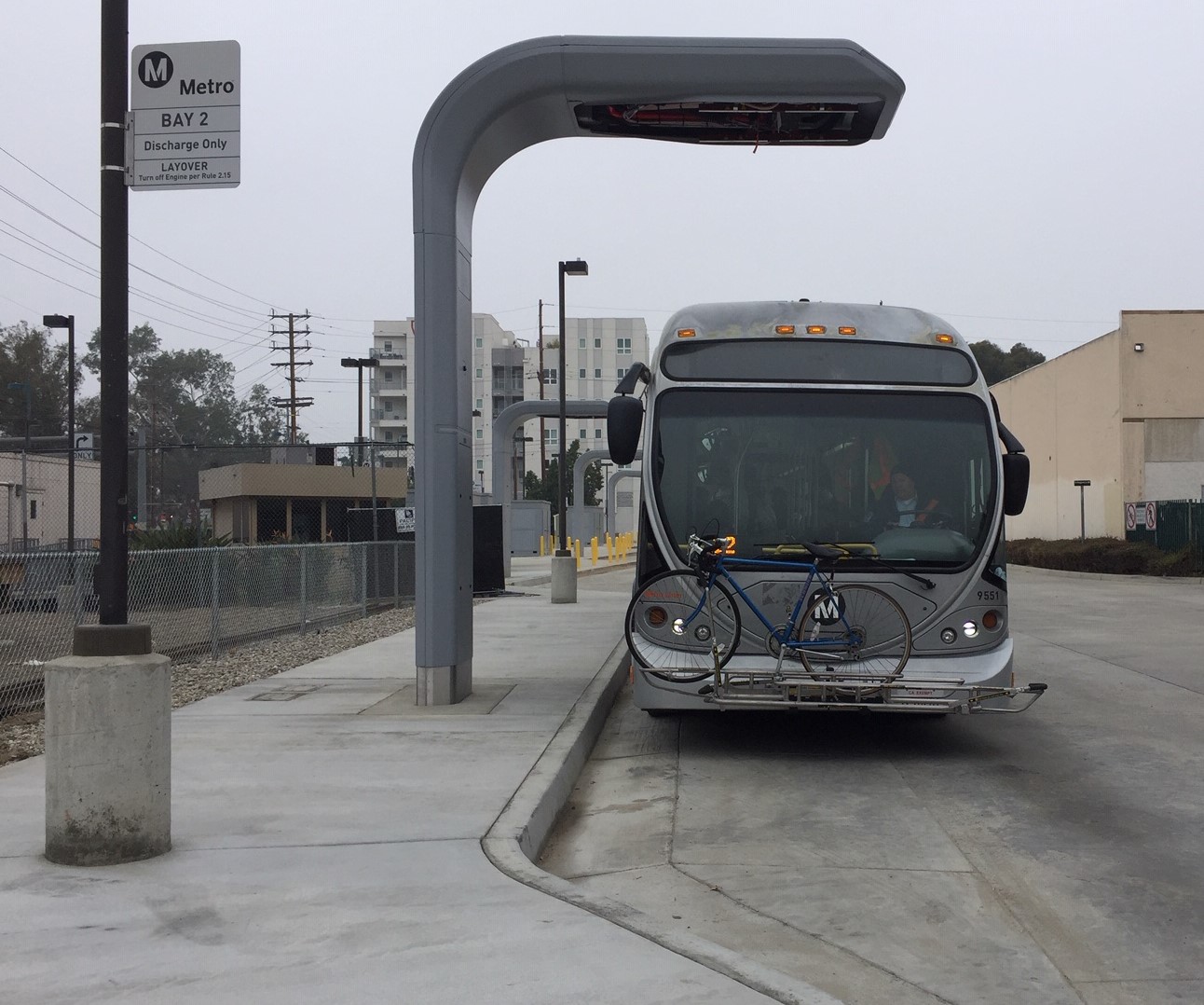
In 2017 Metro announced planned electrification of the G Line (former Orange Line) Bus Rapid Transit that traverses the San Fernando Valley. At the time, full electrification of the G Line was scheduled for fiscal year 2019-20. This did not happen, but the project is far along and now expected to be complete by the end of calendar year 2020.
This week, in an email to Streetsblog, Metro spokesperson Rick Jager reported on G Line electrification progress. Metro has completed bus charging infrastructure at Division 8 (in Chatsworth) and at the North Hollywood Station. Work on the charging units at the Canoga Park and Chatsworth stations is ongoing and nearing completion. According to Jager, Metro has received 19 of 40 New Flyer articulated electric buses for use on the G Line. The buses are in various stages of testing/acceptance. "We have over the last few months been testing and operating the electric buses along the G Line alignment, but not in revenue service yet."
Jager reports that Metro plans "to deploy the first of the electric buses on the G Line (Orange) the week of July 27. The line will be fully electrified with zero emission electric buses by the end of the year."
Metro's second electric bus pilot - J/Silver Line bus electrification - is scheduled for next summer, but that's another story.
Beyond immediate clean air benefits for riders, electrification of the G Line is seen as an important early Metro testing ground for the new technology.
Though the current G Line delay is only six months, combined with other factors, it does not bode well for broader Metro bus electrification efforts.
In 2017, the Metro board approved a plan to electrify the entire Metro bus fleet by 2030. The electrification plan has several champions on the board, including electric vehicle aficionado Los Angeles Mayor Eric Garcetti.
Metro staff resisted bus upgrades from diesel to compressed natural gas, and are still resisting planned upgrades from CNG to electric. When Metro has faced funding shortfalls - for Olympics project acceleration and due to the COVID-19 recession - Metro staff are quick to give the board an option to push back on the 2030 electrification schedule, which comes with an estimated cost of an additional $1.1-1.5 billion.
Metro applied for a $105 million bus electrification grant in February 2020, but that state Transit Capital (TIRCP) application was not funded.
Metro's electrification schedule had hinged on a 2019-2020 “technology assessment.” This was to culminate in a Spring 2020 Zero Emission Bus Master Plan update that was expected to result in a new electric bus procurement. Those new buses are scheduled to start being delivered in 2023. With Metro grappling with the COVID-19 crisis, the Spring 2020 ZEB plan update never happened. The next electric bus procurement is nowhere in sight. Metro staff could well be eyeing extending past CNG bus procurement contracts.
Hopefully, the delayed G Line electrification goes successfully starting in a couple weeks. Hopefully the pilot will be a great success that helps Metro get back onto its planned electrification schedule.






